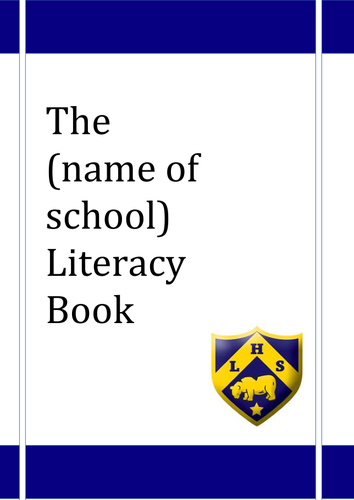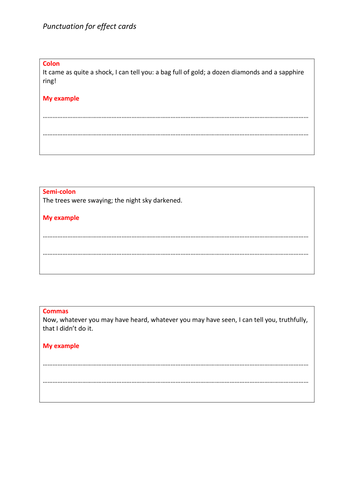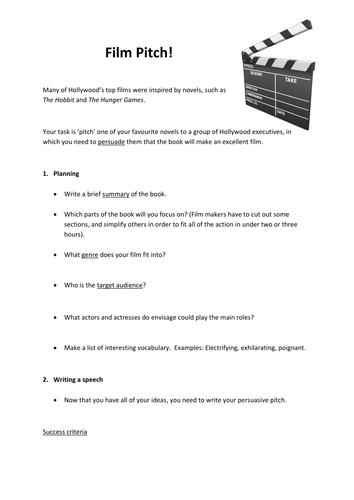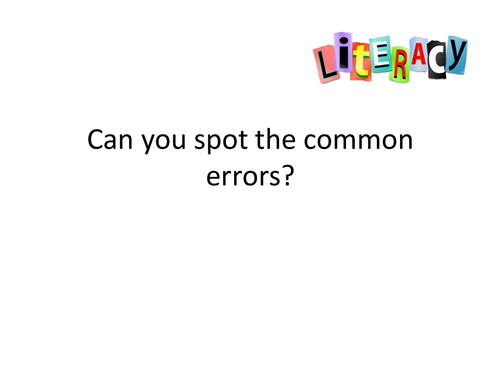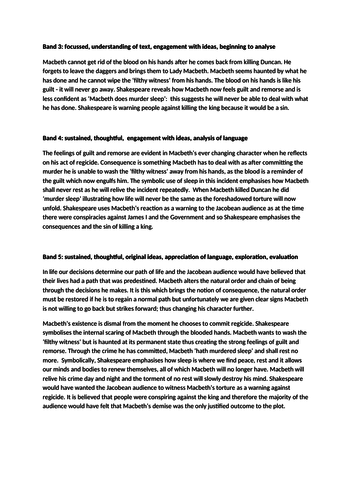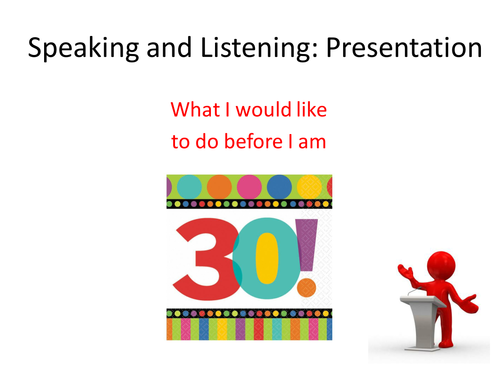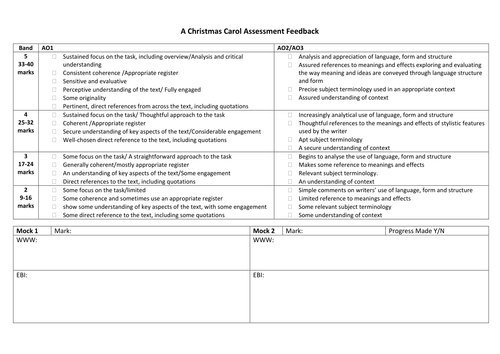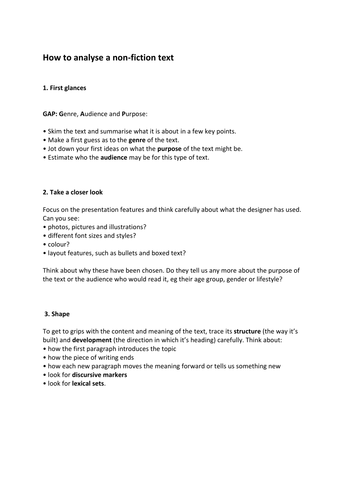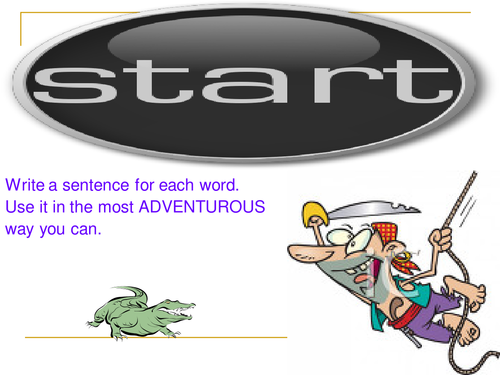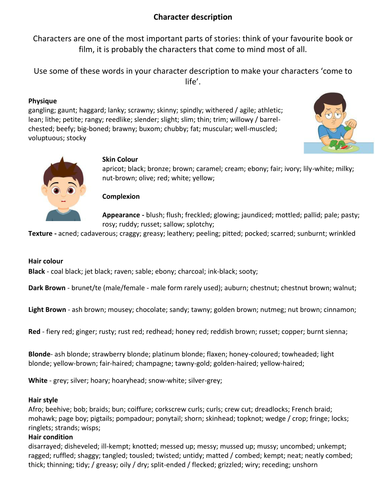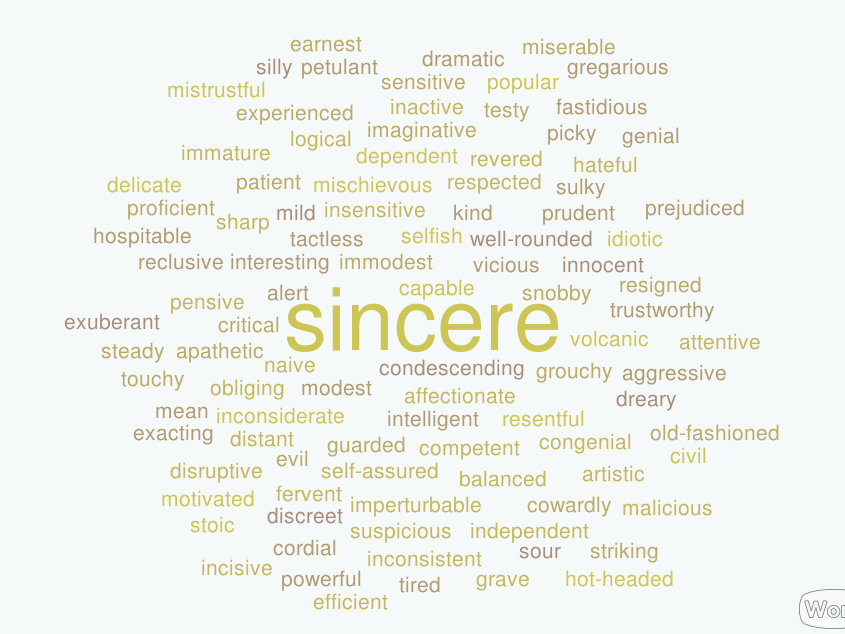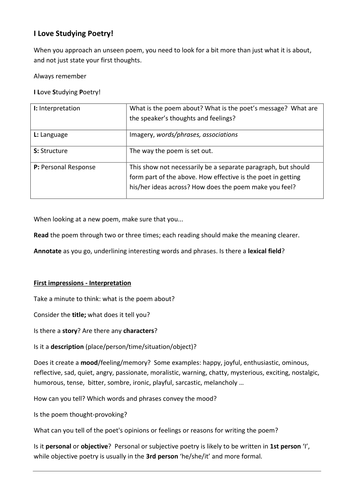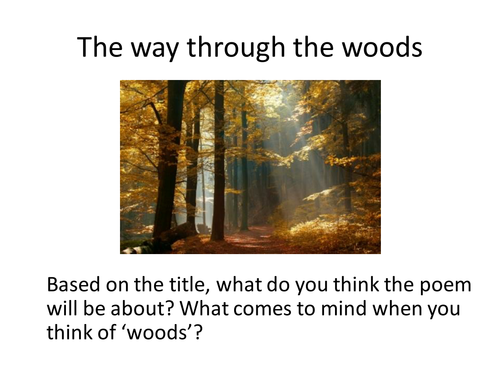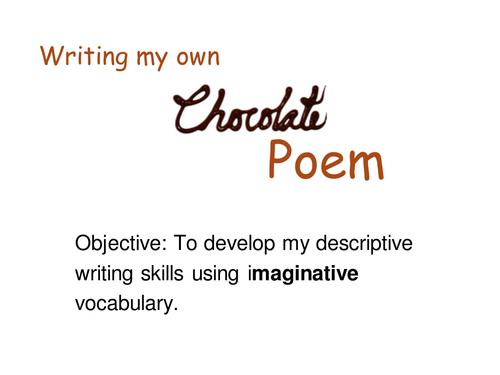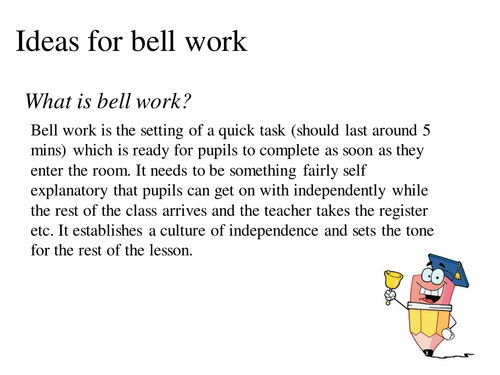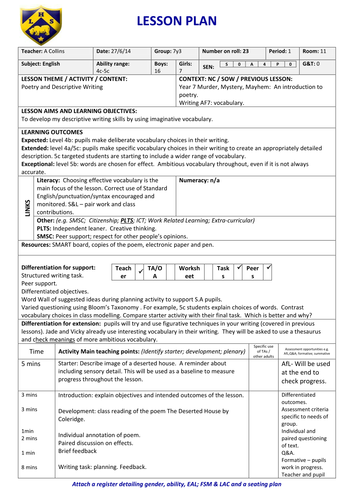
34Uploads
26k+Views
10k+Downloads
English

Whole School Literacy Book
A book I've written to be given to all staff and students.
Topics include:
What is literacy?
How to improve your work: responding to feedback
Making your writing more interesting: Sentence Variety
Three tips for improving your writing style
Making your writing accurate: Punctuation
Commas
Speech Marks
Colons and Semi-colons
Apostrophes
Making your writing flow: Paragraphs
Making your work flow: connectives
How to develop your answers
Making your writing accurate: Spellings
Spelling strategies
Nine spelling rules to learn
Homophones
Homonyms
25 commonly misspelt words
How to improve your work: Redrafting
How to improve your word power
Worn out words
70 words to sharpen your expression
Common literacy errors

Punctuation for effect cards
Cards that can be cut out and used to practice the full range of punctuation for Level 5-7.

Film pitch - turn a book into a successful film.
A series of lessons in which pupils use persuasive writing. Pupils are to persuade a group of Hollywood producers to turn the class novel into a blockbuster film. A useful end of topic activity.

10 common literacy errors
10 common literacy errors with an explanation of why they are made, and the correct response for each.

Macbeth - three model paragraphs Band 3, 4, and 5.
The same point and quote written about in three different ways. Pupils highlight the differences to see what makes a top grade response.

What I would like to do before I am 30 - Speaking and Listening Presentation
Two lessons in which pupils firstly write out a presentation on what they would like to do/achieve before they turn 30, and then present their ideas to the class. Ideas to get them started are included, planning resources, ideas on how to structure their talk, and a self-assessment form.

143 Dingbats (fun word games)
143 word games with answers. Useful to put a couple up at the start of a lesson to get pupils settling down and engaged, or as fun little 'fillers'.

Eduqas/WJEC English assessment feedback sheets
Make marking easier by using these tick sheets. You do not need to write down what they have done well, just tick. Pupils can even write their own E.B.Is once their work has been returned.

How to analyse a non-fiction text
A handy 2 page worksheet taking pupils through the steps of analysing any non-fiction text.

Quickdraw
A whole lesson the poem Quickdraw by Carol Ann Duffy. A discussion and analysis of key imagery and writer's ideas. Includes an activity where pupils have to get out of their seats to discuss some of the issues in the poem.

Gothic/Ghost Story Vocabulary
Lots of words to help students write their own Gothic/ghost story.
Includes ambitious vocabulary such as 'lugubrious' to push higher attaining students and encourage students to think carefully about their vocabulary choices.

Born Yesterday
A lesson on the Phillip Larkin 'Born Yesterday' including word associations and analysis of key imagery and a discussion on the ideas in the poem.

Writing descriptions/Writing to describe
A lesson on writing to describe. Includes criteria, model responses, AfL tasks, guided writing activity to allow students to progress.

Vocabulary to describe character
A two sided sheet full of interesting words to describe characters. Useful for creative writing and improving vocabulary.

Unseen Poetry SoW, sample questions, model answers, and other resources
This is for EDUQAS, but mark schemes etc can easily be adapted for other exam boards. There are lots of practise questions, a few model answers, a resource showing the steps to answering a response, assessment materials, and a few handy hints.

The Way Through the Woods - Kipling
A lesson which teaches pupil how to analyse a poem for themselves - the teacher should be doing very little in this lesson. Pupils work in groups: each member of the group is assigned a role. A carousel activity follows, ending with a whole class feedback.

Write your own chocolate poem!
A fun and challenging lesson in which pupils use sensory detail and imaginative vocabulary to create their own chocolate poem. Pupils will need a small chocolate bar for this lesson. Drag out the torture - they have to smell the chocolate, then describe it, a small bite, then describe it, and so forth.
I have done this many times before, and it has always gone down well. This is very good as a memorable Year 6 induction lesson, or a lesson on creative writing.

Bell work ideas
Lots of ideas for 'bell work', that 2-5 minutes of dead time while you wait for other students to arrive. Great for embedding literacy skills, engaging the class, calming and settling challenging classes, and providing reasons to get to lessons on time!

The Deserted House!
A creative writing lesson based on the poem The Deserted House. Resource includes presentation including starter, activities etc, copy of the poem and a lesson plan (this was a an observed lesson which was judged outstanding). Focus for the lesson is on sensory detail and ambitious vocabulary.

